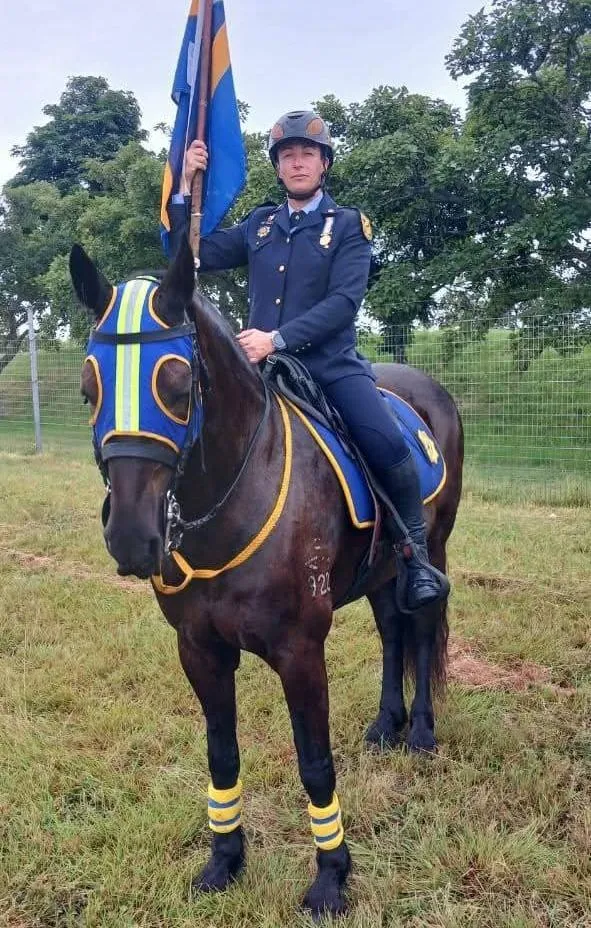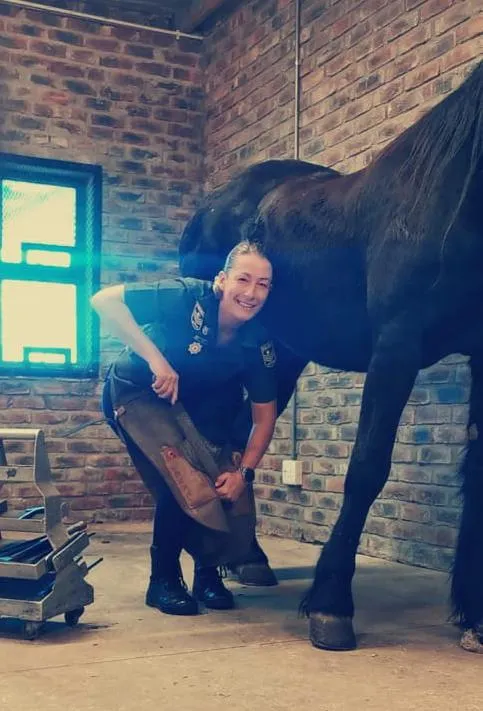
Sergeant Vernadene Jonker is revolutionising the role of women in law enforcement through her groundbreaking work in farriery and her commitment to inspiring future generations.
Image: Supplied/SAPS
In a profession that has traditionally been male-dominated, 35-year-old Sergeant Vernadene Jonker is not just part of the South African Police Service (SAPS); she is a beacon of hope and progress.
Attached to the Gqeberha Mounted Unit, Jonker stands out as the only female member currently enrolled in the SAPS Farrier Development Programme—a position that underscores her determination and passion for equine care and service.
Jonker's journey with the SAPS began on 7 July 2009, when she stepped into the SAPS Academy at All Saints, embracing the value of service with vigour.
Over the past 16 years, she has honed her skills across various SAPS environments, including Kamesh Crime Prevention and the Operational Command Centre in the then Uitenhage Cluster.

Sergeant Vernadene Jonker is not just part of the South African Police Service; she is a beacon of hope and progress.
Image: Supplied/SAPS
However, her undeniable love for animals led her to a transformative path with the Gqeberha Mounted Unit in 2019. After completing the Basic Mounted Policing Course, she advanced her expertise further with the Stable Official Course in 2021.
Since early 2023, Jonker has embarked upon the elite and demanding journey of becoming a farrier—an essential role vital to the operational readiness of SAPS horses.
Farriery combines artistry and practical skill, demanding precision in both the care and shoeing of horses that form the backbone of mounted policing.
"This is not just a job. It is an act of courage, strength, and skilled precision. Every hoof she shapes, every spark from the forge, is a bold declaration: No dream is too heavy to carry. No fire too hot to handle," she asserts, illustrating her tenacity and commitment to the craft.
Jonker’s presence extends beyond mere duty; she embodies the values of discipline, leadership, and service while participating in rural patrols, ceremonial events, and operational deployments.
The impact she has as both a sergeant and an inspiration cannot be overstated. She actively demonstrates that women can— and do—belong in every facet of policing and service, regardless of traditional barriers.
Her empowering message to the youth, especially young girls, reflects her commitment to inspire: “Let my story be your signal. You can lead, you can serve, you can master any skill; you are strong, you are capable, you are next.”
IOL
Related Topics: